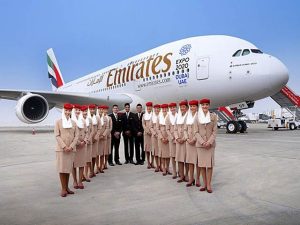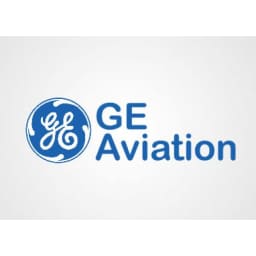Here is how Emirates Boeing 777-300ER will be the first ever on the fleet to conduct test flight using 100% Sustainable Aviation Fuel (SAF), a major move to deepen CO2 Emissions Cut
Emirates and GE Aviation have signed a
Memorandum of Understanding (MoU) to develop a programme that will see an Emirates Boeing 777-300ER, powered by GE90 engines, conduct a test flight using 100% Sustainable Aviation Fuel (SAF).
Platforms Africa reports that the test flight slated for thelast quarter of 2022.
Chief Operating Officer, Emirates Airline, Adel Al Redha, confirmed this in a statement sent to Platforms Africa.
“Emirates is committed to supporting initiatives that help minimize its CO2 emissions, and we’ve already made great strides in fuel efficiency and conservation as well as operational advancements across different areas of our business. Our agreement with GE Aviation will support progress on the industry’s collective commitment to net zero emissions, and we look forward to continuing this close collaboration.
“Our partnership with GE Aviation to prepare for the test flight will be an important step towards securing certification of flights that are powered by 100% SAF,” Al Redha said.
READ ALSO: S’African Airways Resumes Jo’burg-Lagos Flight Dec. 12, Ends 1-Year Drought
How WF de Klerk, last of White South African Presidents, Died of Cancer
How ICPC Recovered 301 Houses From Two Civil Servants
Oil Investment Window Narrowing, TotalEnergies Calls For Accelerated PIA Implementation
Oil Minister confirms Platforms Africa Exclusive News on DPR, PPPRA, PEF scrapping, CEOs’ sack
Currently, SAF approved for use is a blend of petroleum-based Jet A or Jet A-1 fuel and a SAF component with a maximum blend limit of 50%. One of GE’s fuel experts chairs an international task force to develop
standardized industry specifications supporting adoption of 100% SAF, which does not require blending with conventional jet fuel.

A milestone collaboration for both Emirates and GE Aviation, the 100% SAF test flight is expected to demonstrate how wide body commercial aircraft using jet fuel made from alternative sources can lower lifecycle CO2 emissions compared to petroleum-based fuels with no operational issues.
The demonstration flight also supports both companies’ broader efforts to reduce CO2 emissions as the industry looks to scale up its use of SAF.
Emirates will work closely with regulators to secure approvals for experimental type certification, and will also coordinate with airframe, Auxiliary Power Unit (APU) and Original Equipment Manufacturers (OEMs)
on pre- and post-flight requirements, in addition to closely working with SAF suppliers on procurement and delivery logistics.
In addition to customer support, GE Aviation will complete necessary technical reviews to confirm the engines will meet performance
specifications and provide any pre- and post-flight directions as needed.

“GE Aviation is committed to pursuing efforts to reduce CO2 emissions from commercial aviation, including developing technologies for the fleet in service and the future of flight. This collaboration with Emirates is key to our efforts to standardize 100% SAF globally, which
could provide a significant opportunity to expand the impact of SAF on aviation’s carbon reduction efforts,” said John S. Slattery, President and CEO of GE Aviation.
Emirates has long been a supporter of industry and government efforts to encourage the development of the SAF industry, and regularly
participates in initiatives to contribute to SAF deployment. Its first flight powered by SAF was in 2017, operating from the Chicago O’Hare
airport.
Emirates received its first A380 powered by SAF in December 2020, and also uplifted 32 tonnes of SAF for its flights from Stockholm earlier
that year, with the support of Swedavia’s Biofuel Incentive Programme. Flights from Oslo have also begun operating on SAF under the Norwegian government SAF mandate policy.
The airline is also a member of the Clean Skies for Tomorrow coalition, established by the World Economic Forum, which is supporting a
transition to SAF as part of a pathway towards carbon-neutral flying.
All GE Aviation engines can operate with approved SAF, which is made
from plant oils, algae, greases, fats, waste streams, alcohols, sugars, captured CO2, and other alternative feedstock sources. By starting with alternative feedstocks instead of fossil fuels, CO2 emissions can be
reduced during production.
GE Aviation has been actively involved in assessing and qualifying SAF
since 2007 and works closely with producers, regulators and operators to
help ensure that SAF can be widely adopted for use in aviation.





